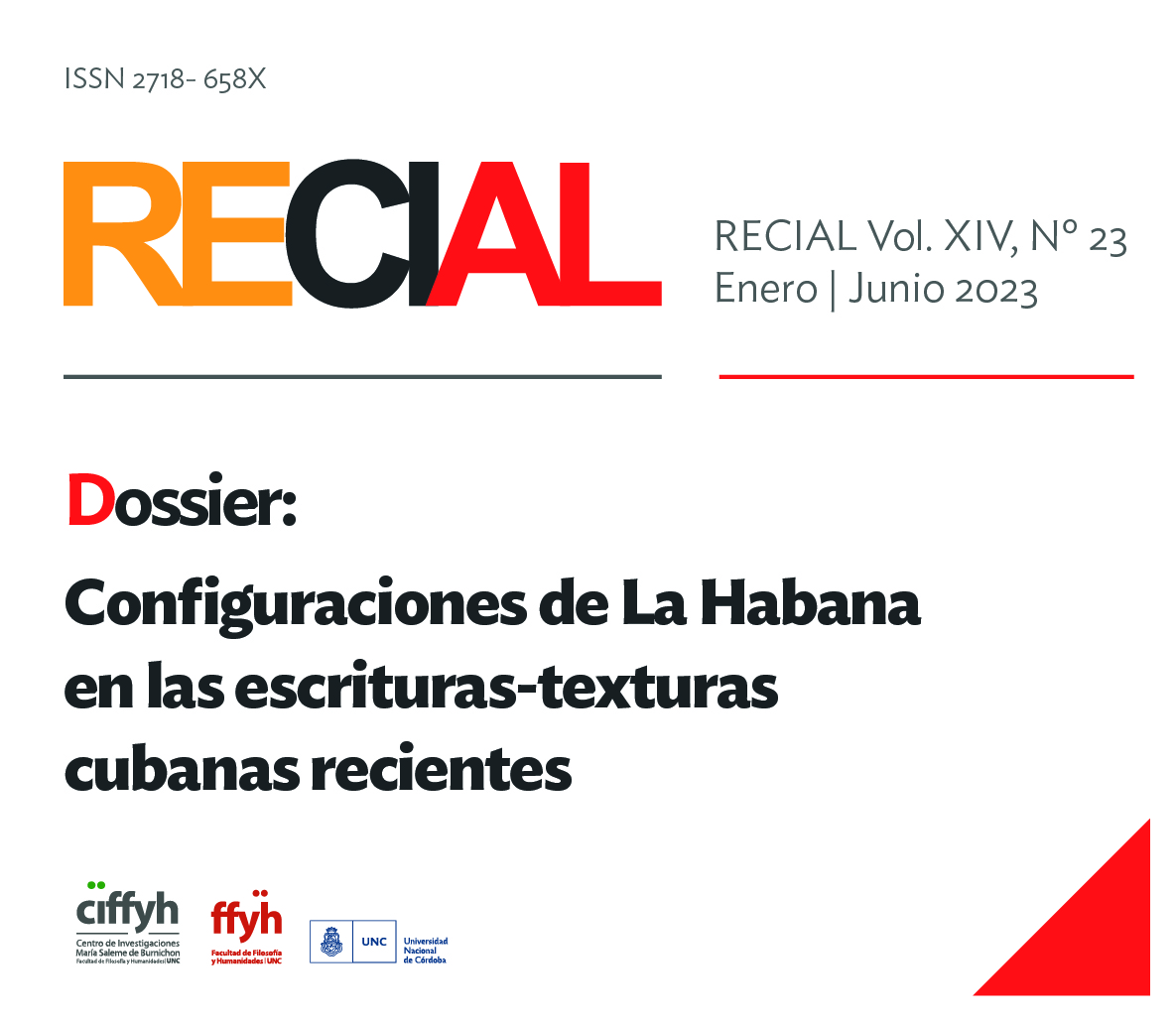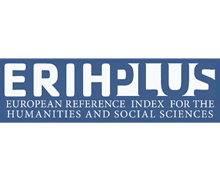The ear to the poem Listening and affectivity in recent Argentine poetry
DOI:
https://doi.org/10.53971/2718.658x.v14.n23.41228Keywords:
contemporary Argentine poetry, affectivity, listening, voice, othernessAbstract
In the current paper, I propose an itinerary based on four scenes in which different relations between listening and affectivity are articulated: hate, love, politics and otherness. Each section focuses on different books of contemporary Argentine poetry of the last decade: Odio a la poesía objetivista, by Francisco Garamona; Vos ahora voz, by Franco Rivero; Sequía and Una bomba nos está matando a todos, by Gabriel Reches; and Martes dedo, by Alfonsina Brión. My objective is to analyze the solidary functioning between listening and affectivity through the formal and compositional effects on the texts. As a hypothesis, I start from the idea that listening marks a form of relationship with the other in the poems. Methodologically, I return to the studies of Florencia Garramuño and Luciana di Leone on poetry and affectivity. In turn, I refer to the theories around listening outlined mainly by Jean-Luc Nancy and Peter Szendy. As a contribution to the specific field of Argentine poetry criticism, although the article proposes an itinerary through specific books, the problem raised could be thought of transversally as a possible line of composition for the poetry of the present.
Downloads
References
Barthes, R. (2002). Fragmentos de un discurso amoroso. Buenos Aires: Siglo XXI.
Brión, A. (2014). Martes dedo. Bahía Blanca: Chuy.
di Leone, L.(2014). Poesia e escolhas afetivas. Edição e escrita na poesia contemporânea. Rio de Janeiro: Rocco.
Dolar, M. (2007). La política de la voz. En Autor, Una voz y nada más (pp.129-151). Manantial: Buenos Aires.
Garamona, F. (2016). Odio la poesía objetivista. Rosario: Iván Rosado.
Garramuño, F. (2015). Mundos en común. Ensayos sobre la inespecificidad en el arte. Buenos Aires: FCE.
Giorgi, G. y Kiffer, A. (2020). Las vueltas del odio. Gestos, escrituras, políticas. Buenos Aires: Eterna Cadencia.
Girri, A. (1972). Diario de un libro. Buenos Aires: Sudamericana.
Goldsmith, K. (2015). Escritura No-creativa. Gestionando el lenguaje en la era digital. Buenos Aires: Caja negra.
Han, B.(2017). La expulsión de lo distinto. Buenos Aires: Herder.
Laxagueborde, J. (2016). Odio la poesía objetivista. Recuperado de
https://www.revistaotraparte.com/literatura-argentina/odio-la-poesia-objetivista/
Molina, C. (2017). Odiar la poesía objetivista. Recuperado de https://www.bazaramericano.com/resenas.php?cod=660&pdf=si
Nancy, J.(2007). A la escucha. Amorrortu: Buenos Aires.
Porrúa, A. (2011). Caligrafía tonal. Ensayos sobre poesía. Buenos Aires: Entropía.
__________ (2014). “La escucha y sus párpados” en Badebec - VOL. 4 N° 7 (Septiembre 2014). pp. 143-158.
Prieto, M.(2006). Breve historia de la literatura argentina. Buenos Aires: Taurus.
____________ (2014). Natural. Bahía Blanca: Vox.
Reches, G. (2019a). Sequía. Buenos Aires: Vos tampoco vas a ser feliz.
_________ (2019b). Una bomba no está matando a todos. Buenos Aires: Vos tampoco vas a ser feliz.
Rivero, F.(2018). vos ahora voz. Buenos Aires: Deacá.
Szendy, P. (2003). Escucha. Una historia del oído melómano. Barcelona: Paidós.
Tocquet, R. (1974). Médiums y fantasmas. Barcelona: Plaza&Janes.
Toop, D. (2013). Resonancia siniestra. El oyente como médium. Buenos Aires: Caja negra.
Zelarayán, R. (2009). Ahora o nunca. Poesía reunida. Buenos Aires: Argonauta.
Published
How to Cite
Issue
Section
License

This work is licensed under a Creative Commons Attribution-NonCommercial-ShareAlike 4.0 International License.
Aquellos/as autores/as que tengan publicaciones en esta revista, aceptan los términos siguientes:
- Los/as autores/as conservarán sus derechos de autor y garantizarán a la revista el derecho de primera publicación de su obra, el cuál estará simultáneamente sujeto a la Licencia de reconocimiento de Creative Commons que permite a terceros compartir la obra siempre que se indique su autor y su primera publicación esta revista.
- Los/as autores/as podrán adoptar otros acuerdos de licencia no exclusiva de distribución de la versión de la obra publicada (p. ej.: depositarla en un archivo telemático institucional o publicarla en un volumen monográfico) siempre que se indique la publicación inicial en esta revista.
- Se permite y recomienda a los/as autores/as difundir su obra a través de Internet (p. ej.: en archivos telemáticos institucionales o en su página web), luego de su publicación en la revista. (Véase El efecto del acceso abierto).























